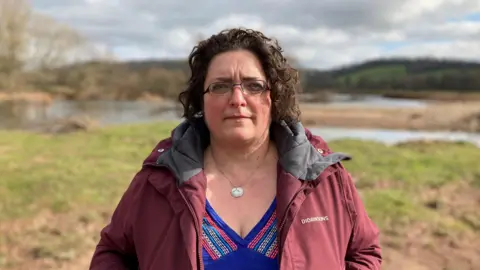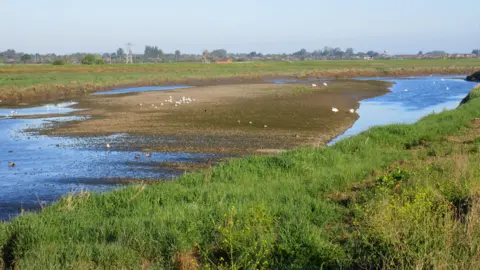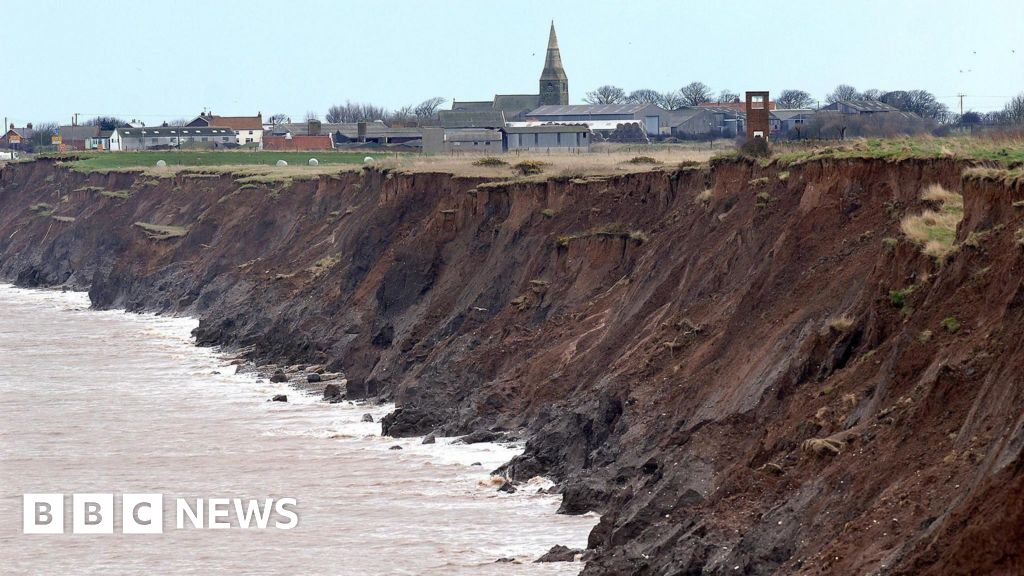Wales' drought experts to meet amid record low river levels
Ian Christie, managing director of water, asset planning and capital delivery at the firm said it was "implementing measures to preserve upland reservoir supplies where we can" while trying to cut leaks from pipes.


Natural Resources Wales (NRW) said there had been "no or very little rain across Wales" so far in May and "the majority of rivers are currently low".
Caroline Harries, who leads NRW's water resources team said spring was critical for "fish migration and land management" and her teams were "closely monitoring river levels and temperatures".
She also urged people to use water wisely to "protect our natural environment".
The drought liaison group is chaired by the Welsh government and brings together the country's water firms, NRW, the Met Office, farming, environment and public health leaders.
Thursday's meeting will review the latest data, with potential announcements to follow, BBC Wales has been told.
Experts could decide to declare a period of prolonged dry weather across all or part of Wales, marking a step further on the ladder towards an official drought.
NRW's website notes that, once prolonged dry weather is declared, the regulator "steps up its actions" that include enhanced monitoring and checks on water bodies, providing guidance for farmers and ensuring those who take water from rivers are abiding by the conditions on their licence.

 Tudur Davies
Tudur Davies
Gail Davies-Walsh, chief executive of Afonydd Cymru - which represents Wales' rivers trusts - said a change in status would involve an "increase in communications" by all involved in drought planning.
"We're really asking people to think about the fact that the water they use in their home is either coming from a reservoir in Wales or it's coming from our rivers," she said.
Being mindful with water usage now "can reduce the number of actions we need to take further on" and would also help protect fish and wildlife "trying to survive in what is becoming increasingly hotter water and much lower levels".


Retired agriculture teacher Tudur Davies, 78, cycles daily around his local area near St Asaph in Denbighshire, taking photos, and said he had been struck by how early in the year signs of a drought were appearing.
"The hills look burnt," he said, adding that peatland, usually wet and boggy, "is now crunchy" underfoot.
"Even if we get quite a bit of rain next week it will take a long time for things to change," he added.
The Welsh government said it was "working with partners to monitor the levels of water bodies" and the drought liaison group would "continue to meet regularly to share situational updates, and to ensure water supplies are effectively managed and our environment is protected".













